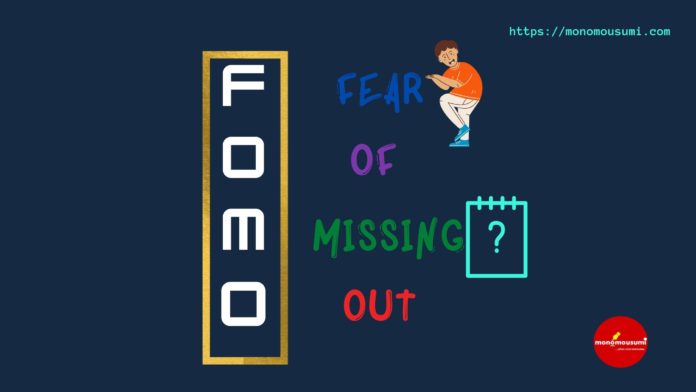Scrolling down our feeds, liking posts and pictures, commenting down our cut-throat points; be it logical or illogical; we just bring in a sense of joy inside us. We are happy, joyful, cheerful, empathetic and we try to know more about things, scenarios, situations and circumstances all over the world and within the lives of people. We become so really curious about each other and our stories that we ought to listen to people. We know we don’t, we don’t do it for a particular or specific purpose, but we feel like doing it and we do it. Alongside, our brains are creating so many beliefs and perceptions simultaneously that just a few minutes of scrolling our feeds, makes our mind more or less, a complete chaos. We become insightful and curious while watching so many updates about millions of things that we forget that we also live the same life.
We realise that we probably just have so many things to listen and talk about, that we feel like being someone else: living a different life from another person would be the best choice by then. By and by we get closer to the lives of others, that we feel like drowning inside their bodies and enjoying their lives; or take a break from one’s life. Eventually, those feelings that promote the one and only— FOMO. Fear of missing out. We feel their lives are better for sure. We feel every single thing keeps on happening with us, is for something worse itself. We are fine with our lives only until we look at others.
We claim to be the first creatures with the worst life ever on the planet; and between all these invaluable thoughts, we are jailed inside a creepy cell bar which are carved out from innate habits of overthinking. This happens when we reach out to compare ourselves with people and their so-called personal lives. We inhale the sense of extreme pleasure but we exhale what’s entirely out of our control. But little do we know that everybody possesses different problems; instead of sympathising ourselves with it, we need to build a better self with empathy; something that’s going to make the circumstances look better. When we work at nourishing our FOMOs; we indeed try our best to put ourselves down in fate of what’s happening wrong with us. Dominating enough, these things and situations feel like a curse. They analytically do. We are already embodied with all these sorts of senses and fears within us automatically, that we initially remember to vanish them off, but eventually we start exhaling out those thoughts; which then gives us the physical relief, distorting us from the realm of life.
The understanding of FOMOs in our heads is building up so instantly that it’s not even given us time to stabilize and honour ourselves and good incidents happening with us. It’s so awe-inspiring about how these fears work in our heads to sort out what’s essential for us. And once this process is held; we thoroughly start making so many other beliefs in our minds that the situation, then, gets horrible. If you watch out carefully, so many things are built inside us, because of the environment we have been brought up in. Our parents and then their parents, always taught us to follow the beliefs nevertheless, just because they have followed them too.
Beliefs are just some set of instructions we need to heal from. They are in tacked as if a pile of memories stored in the brain. The Bhagvad Geeta says—‘Fear is inevitable. Fear is everlasting. But, you can decrease it by controlling it. Believe on things which you are to believe; don’t believe on things which seem to be the most logical things. Fear is a part of life, just like food. If you use it to make yourself authentic, it’s no more than a helper, but if you give it the place of a tamer, it’s nonetheless going to harm you!’
Underneath every negative emotion, situation or circumstance, there’s always the work of fear behind it. It’s like a dark horse that hasn’t yet displayed his true colours to you. Let’s say anger, when you’re angry on your one of the friends for telling your secrets to somebody else (which is the most common in high-school; so it was difficult to ignore this fact), you fear that somebody else will get to know those secrets of yours; when you are angry on your one of the fellow batch mates for not returning your notes of the course, you fear that you won’t get your notes and you will have to make them again. Thus, fear is almost everywhere; and the fact is we can not ignore it, or even run away from it. We just need to face it. All in all, every fear can be classified in #MIA or #FOMO. But if we hide ourselves, because of fear, we miss out on those moments. We miss out on a chance to save a memory, we could pull out of our little brain file when we are seventy-three and talking to our grandchildren about the memory, with sipping tea in our wrinkled hands. Thus we need to actually tame our fears to make ourselves more supportive; and in an attempt to train our fears we need to use the strict no-act routine. In the era of social media, it is necessary to keep yourself digitally at a distance from what is taking a lot from you.
We often sacrifice self for others; in psychological terms, such behaviour is called—‘ALTRUISTIC BEHAVIOUR’—sacrificing self for others. Evidently, this happens most of the time when we sacrifice so many things in order to serve others. To take care of our fear, we need to say a big ‘no’ to stress, self-sacrifices, trauma, critics, choices and even vice-versa. We also need to say a big ‘no’ to less stress, appreciation, expectations and all those other things which are either extremely bad or extremely good. These extreme situations create extreme emotions within us; and the outcome of most of these emotions is fear—missing an action: fear of missing or out, something.
Just the two letter word: no, encloses a lot of power in it.
In this world where exhaustion, stress and tiredness are ruling our bodies, we need to offer less and give a great shot at what we offer. We can’t afford to offer our services to fear; we can’t.
So as to tame FOMO, we need to get rid of services that suppress self. Once we do it, we would know how to handle our FOMOs. We are living a great life though; whatever life brings to us, we need to be really intimidating towards it. This way, we are letting optimism flow through us that vanishes away the creepy fears.
“Optimism is a muscle that flexes. If you work more on it, the more it will grow. It can be learnt by practice.”
By Atulya Bajaj












Nice and very retable